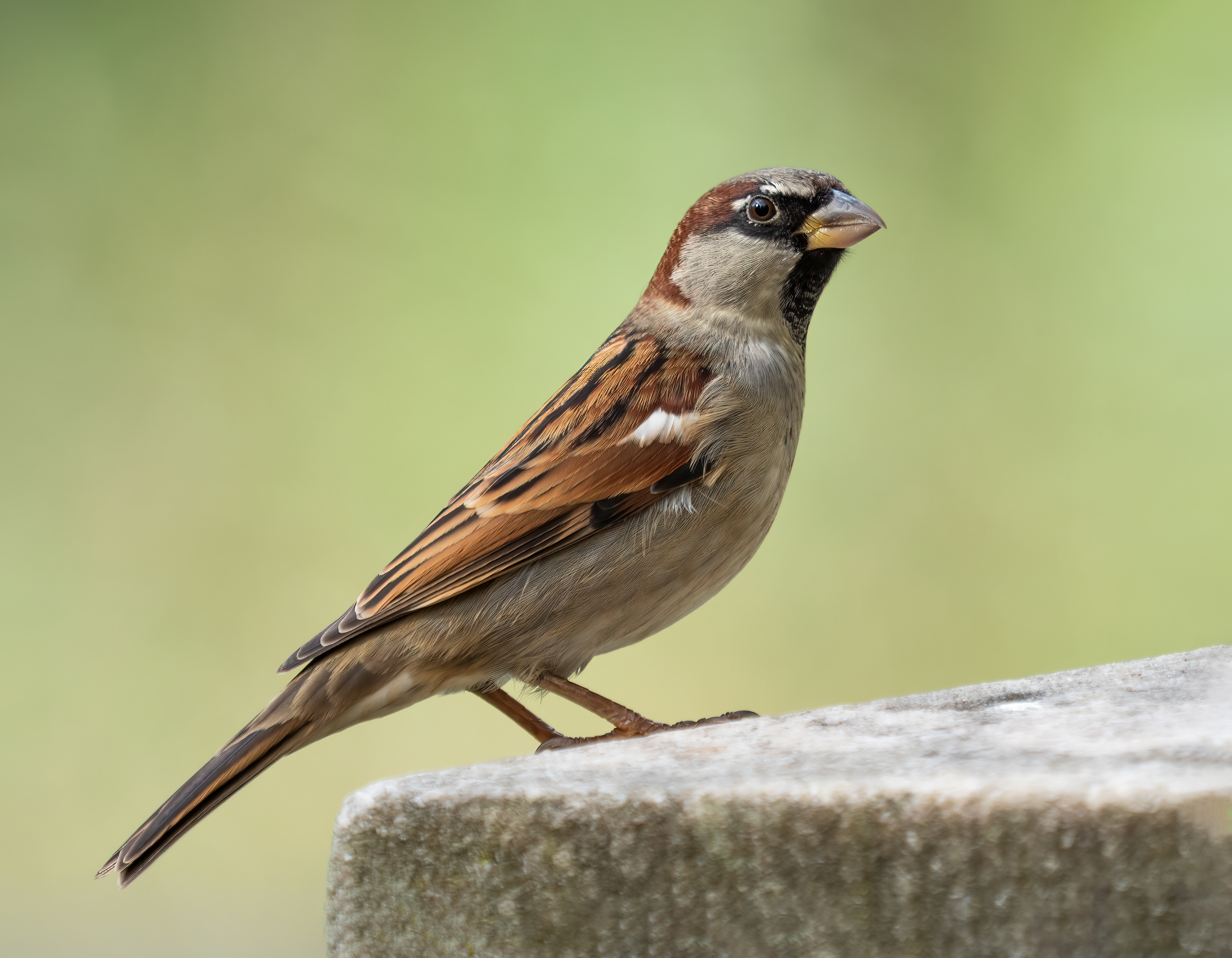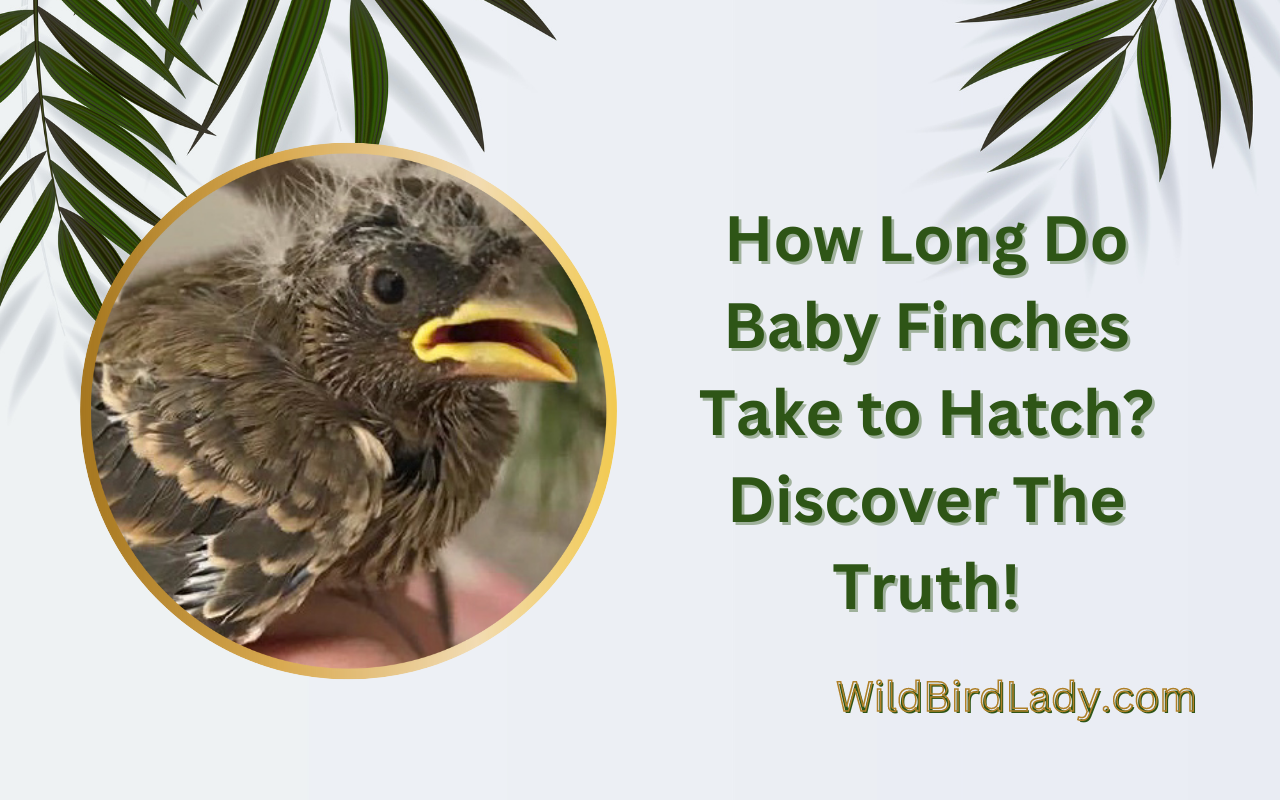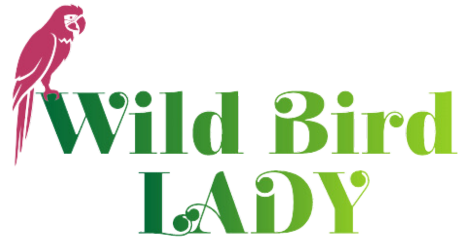Baby finches take an average of 12 to 14 days to hatch. After being laid, the eggs usually hatch within 12 to 18 days, depending on various factors like temperature, humidity levels, and incubation.
Finches are small and colorful birds that are popular among bird enthusiasts. They are known for their melodious songs, and many people keep them as pets. If you are planning to breed finches, it is essential to understand the hatching process to take care of the babies properly.
The incubation period for finches varies, but it usually takes around two weeks for the eggs to hatch. During this time, it is vital to maintain a stable temperature and humidity level to ensure the healthy growth of the eggs. In this article, we will explore the hatching process for baby finches and what to expect during this exciting time.

Credit: en.wikipedia.org
Understanding The Hatching Process Of Baby Finches
Finches are a popular choice among bird lovers, and for good reason. Watching a family of finches grow and develop is fascinating. One of the most interesting phases in the finches’ journey is the hatching process of baby finches. In this blog post, we will explore the details of how long it takes for baby finches to hatch and the factors that affect this process.
Overview Of The Incubation Process
Incubation refers to the period for which the female bird sits on the eggs to keep the embryos warm until they hatch. During incubation, the male finch feeds the female bird. The incubation period varies depending on the type of finch and ranges from 11 to 14 days on average.
The incubation period of a finch’s egg depends on several factors, such as temperature, humidity, and the bird’s behaviour.
How Baby Finches Develop Inside The Egg
Baby finches develop inside the egg, starting as a single cell and growing into a fully-formed bird. The female finch has a pair of reproductive organs called ovaries, and each ovary contains several developing egg yolks at any given time.
When the female finch is ready to lay an egg, one of her ovaries releases a yolk, which travels down the oviduct, where fertilization occurs if a male finch has mated with her. The egg then hardens as it passes through the oviduct, forming a hard outer shell.
The yolk contains all the nutrients the embryo needs to grow, including proteins, carbohydrates, fats, and minerals.
Factors That Affect The Hatching Process
Several factors can affect the hatching process of baby finches. Below are some of the most significant ones:
- Temperature: The temperature around the egg should be maintained at a constant level. If the temperature is too low or too high, the embryo may die or develop abnormally.
- Humidity: The humidity level should be maintained at a consistent level, or the egg will lose moisture, causing the embryo to die.
- Turning the egg: The female finch turns the egg several times a day to ensure that the embryo is developing evenly. Neglecting to turn the eggs can lead to malformed or weak chicks.
- Genetics: Genetics play a role in determining the hatching time of baby finches. Each type of finch has a specific hatching period influenced by its genetics.
The hatching process of baby finches is a complex and exciting journey. By understanding the incubation process, how baby finches develop inside the egg, and the factors that affect the hatching process, we can help ensure the successful hatching of these beautiful creatures.
The Timeframes Of Baby Finch Hatchings
Baby finch hatchings have always been a fascinating topic for bird enthusiasts. If you’re interested in knowing how long it takes for baby finches to hatch, then you’re in the right place. In this section, we will dive into the timeframes of baby finch hatchings and the various factors that can impact it.
Average Time It Takes For Baby Finches To Hatch
Typically, it takes around 12-14 days for baby finches to hatch after the mother finch lays her eggs. Keep in mind that this is just an average and can differ based on several factors.
Factors That Can Cause Variations In Hatching Timeframes
Several factors can impact the hatching timeframes for baby finches. Here are some of the most common ones:
- Breeding patterns: Different species of finches have varying breeding patterns that can affect the time it takes for eggs to hatch. Some finches lay eggs earlier than others, which can impact the hatching timeframes.
- Nutrition: The quality and quantity of nutrition the mother finch receives can directly impact the hatching timeframes of the eggs. Finches that have access to high-quality food are known to have shorter hatching timeframes than those with limited access to food.
- Temperature: The temperature of the environment can influence the hatching timeframes of baby finches. For instance, if the temperature is too cold, it can prolong the hatching timeframe.
The Impact Of Environmental Factors On Hatching Periods
Apart from the factors mentioned earlier, environmental factors play a major role in hatching timeframes for baby finches. Here are some of the environmental factors that can influence hatching periods:
- Humidity: High humidity levels can increase the likelihood of fungal growth on the eggs, which can lead to disease and death of the embryos. On the other hand, low humidity levels can dry out the eggs, causing them to desiccate and fail to hatch.
- Predators: Adult birds, snakes, rodents, and other predators can cause significant damage to the eggs or kill the embryos inside. As a result, the eggs might not hatch within the expected timeframe.
- Light exposure: Too much or too little light exposure can impact hatching timeframes. Generally, it is believed that exposure to a constant 12 hour light-dark cycle helps the embryos to develop normally and hatch on time.
Hatching timeframes for baby finches can be impacted by several factors such as breeding patterns, nutrition, temperature, humidity, predators, and light exposure. Understanding these factors is important for taking proper care of the mother finch and her eggs to ensure successful hatching.
Feeding And Caring For Baby Finches
How long do baby finches take to hatch? Discover the truth!
If you are taking care of baby finches, it is essential to know how to care for them properly. One of the critical steps is to feed and care for them correctly. In this section, we will cover the basics of caring for baby finches, including the first steps, appropriate foods and strategies for feeding, and the importance of environmental factors.
First Steps For Taking Care Of Newly Hatched Baby Finches
When you first start caring for baby finches, it is essential to follow these initial steps:
- Keep the nest clean and dry
- Provide enough warmth for the nest with a heat lamp
- Check and maintain the humidity levels between 40-60%
- Ensure the surroundings of the nest are quiet and calm.
It is crucial to provide a stable environment for your baby finches to ensure optimal growth and development.
Appropriate Foods And Strategies For Feeding Baby Finches
The right food and feeding strategies are crucial when caring for baby finches. Here are some tips:
- Provide specially formulated finch food, also known as “finch mix,” which can be found in pet stores.
- Offer high-protein food options such as hard-boiled eggs, canned dog food, mealworms.
- Baby finches also require hydration. Offer them water or use a bird feeder that has a drip system to mimic rainwater.
It is essential to provide small amounts of food to avoid overfeeding or underfeeding. Baby finches usually require feedings every couple of hours, depending on the bird’s age.
The Importance Of Environmental Factors When Taking Care Of Baby Finches
One crucial element when taking care of baby finches is the environment. Here are some factors to keep in mind:
- Temperature: The recommended temperature for baby finches is between 80-85 degrees fahrenheit.
- Humidity: Baby finches in a dry environment can become dehydrated, leading to health issues. Maintain humidity levels between 40-60%.
- Light and darkness: Provide 12 hours of daylight and 12 hours of darkness. It is essential for them to get enough rest.
- Noise: The surroundings should be quiet and serene, as noise can disrupt their sleeping pattern and stress them out.
Creating a conducive environment for your baby finches will ensure optimal growth and development.
Taking care of baby finches may seem like a daunting task, but it is manageable with the right knowledge and preparation. With the strategies and tips provided, you can ensure your baby finches’ safety, health, and optimal growth.
The Significance Of Understanding Baby Finch Hatchings
Baby finch hatchlings are a crucial part of the bird world and the ecosystem at large. Anyone who undertakes the breeding of these adorable creatures must have a thorough understanding of the incubation and care processes to avoid any potential consequences of neglect or mishandling.
We will delve into the existential importance of baby finches, the consequences of neglecting or mishandling incubation and care processes and how gaining knowledge in baby finch hatchings can impact breeding, conservation, and avian research.
Existential Importance Of Baby Finches In The Bird World And Ecosystem
Baby finches are an essential part of the bird world, playing a crucial role in the ecosystem. These magnificent creatures help pollinate plants, disperse seeds, and control insect populations. Without baby finches, the delicate balance of the ecosystem would be thrown off-kilter, leading to severe consequences.
Furthermore, baby finches also provide a source of beauty and wonder in the avian world, bringing joy to bird enthusiasts worldwide.
- Baby finches play a vital role in the ecosystem by pollinating plants, dispersing seeds and controlling insect populations.
- Their absence could lead to severe consequences and upset the delicate balance of the ecosystem.
- Baby finches are a source of beauty and joy to the avian world and bird enthusiasts worldwide.
Consequences Of Neglecting Or Mishandling Incubation And Care Processes
Neglecting or mishandling the incubation or care processes of baby finches can be costly and detrimental. It could lead to the failure of the hatching process, the death of the unhatched eggs, or the death of the hatchlings themselves. Additionally, if you neglect the incubation and care process, the finches may contract diseases, parasites, or nutritional deficiencies, leading to poor health and eventual death.
Proper knowledge of incubation and care processes is thus critical to successful hatching and survival of baby finches.
- Neglecting or mishandling the hatching or care processes can lead to the failure of the hatching process or death of the unhatched eggs or hatchlings.
- Improper incubation and care processes can lead to disease or nutritional deficiencies that could be fatal to the finches.
- Proper knowledge of incubation and care processes is essential for successful hatching and raising of baby finches.
How Gaining Knowledge In Baby Finch Hatchings Can Impact Breeding, Conservation, And Avian Research
Gaining knowledge of baby finch hatchings can have far-reaching effects in the bird world. First, it will improve breeding practices, leading to higher success rates and better conservation of these adorable creatures. Secondly, it will help researchers understand the behavior of baby finches and other avian species, which can lead to groundbreaking findings and discoveries.
Finally, gaining knowledge in baby finch hatchings will improve awareness of the plight of these creatures, leading to more significant efforts towards their conservation and protection.
- Knowledge of baby finch hatchings can lead to improved breeding practices and better conservation efforts.
- It can also lead to groundbreaking discoveries and understanding of the behavior of baby finches and other avian species.
- Increased knowledge in baby finch hatchings can lead to increased awareness and efforts towards their conservation and protection.
Frequently Asked Questions For How Long Do Baby Finches Take To Hatch?
How Long Does It Take For Baby Finches To Hatch?
Baby finches take approximately 12-14 days to hatch after being laid.
When Do Baby Finches Start To Chirp?
Baby finches chirp immediately after hatching from the egg.
How Long Does It Take For Baby Finches To Leave The Nest?
Baby finches typically leave the nest at around 16-22 days old, after being able to fully fly.
How Do You Take Care Of Baby Finches After They Hatch?
Baby finches should be kept in a warm, clean space with food and water provided every few hours.
How Often Should You Check On Baby Finches After They Hatch?
You should check on baby finches regularly throughout the day to ensure they have enough food and water.
What Should You Do If You Find Abandoned Baby Finches?
If you find abandoned baby finches, it is best to take them to a wildlife rehabilitator or experienced bird owner for proper care.
Conclusion
From observing baby finches during their breeding season, one can be amazed at the delicacy of the entire process. Understanding the incubation period, the various factors that may influence it, and the time it takes for the eggs to hatch can help us appreciate the birds’ nurturing efforts all the more.
With an average incubation period of 12-15 days, the eggs develop steadily until the tiny finches come to life. During this time, the parents exhibit an incredible level of care, brooding and turning the eggs, and keeping them at just the right temperature and humidity.
Once the hatchlings emerge, they need several days to grow stronger, learn to eat, and gain the necessary skills to survive in the wild. As challenging as this process may be, it is absolutely fascinating to see the cycle of life being perpetuated in such a beautiful way.
Latest Posts
The Ultimate List: Top 8 Best Birdwatching Podcasts for Avid Birders
Looking for the top birdwatching podcasts? Here are the eight best options to tune into today! Birdwatching can be a thrilling, immersive experience that brings...
Stop Squirrels in Their Tracks: 10 Effective Ways to Safeguard Your Bird Feeder Pole
To prevent squirrels from climbing your bird feeder pole, use squirrel baffles and slippery poles. Here are ten effective ways to keep squirrels from stealing bird food and damaging bird feeders. ...


